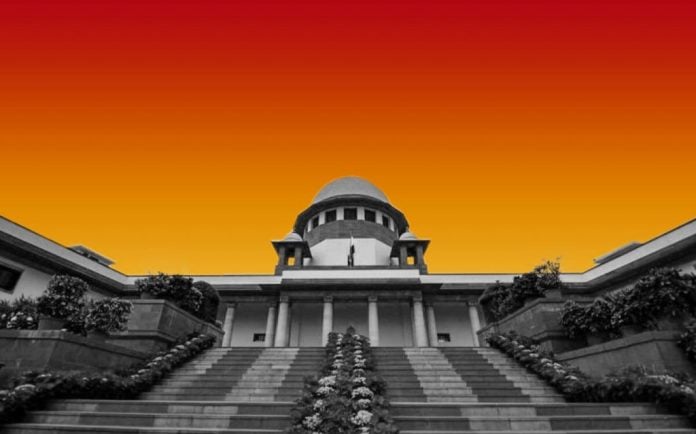The Supreme Court of India bench comprising of Justice DY Chandrachud and Justice Hima Kohli were informed by advocate Vishnu Shankar Jain that the matter pertaining to Gyanvapi mosque issue needs an urgent hearing as the order by the court to protect the area of the mosque where during the survey a “Shivling”was found comes to an end on November 12, paving a way to trouble brewers.
In his request the Advocate has mentioned that it is going to be a difficult issue as interim order by the court is coming to end on November 12 by the court . Following this, the bench gave its nod to hear the plea on November 10.
Considering the complexities and sensitivity of the matter ,the Apex court had transferred a civil suit brought by Hindu devotees against the Gyanvapi mosque to the district judge in Varanasi in May.
The Top court had said that that if a judicial officer who has experience for more than 25 to 20 year hands the case,it would be good.
Also Read: Election freebies: Supreme Court lists matter before 3-Judge Bench, urges early hearing
The Supreme Court also made a significant comment that the Places of Worship Act of 1991 does not prohibit a process to determine a place of worship’s religious character.
The court had said that the matter involves complexities and sensitivity and it would be better if a district judge handles the case and made it clear that it is not casting any aspersion on the civil judge, who was earlier dealing with the suit.
The top court has given clear instructions to the district judge to decide on the priority of the application under Order 7 Rule 11 of the Code of Civil Procedure (on maintainability) which was filed by the mosque committee
The committee said that the civil suit is barred by a 1991 law of Parliament, upon the transfer of the papers of the suit from the civil judge.
It had said its earlier interim order of May 17, directing protection of the area where the “Shivling” is said to be found and allowing Muslims to offer namaz on the mosque premises, shall remain in operation till the maintainability of the suit is decided by the district judge and thereafter, for eight weeks to allow the aggrieved parties to approach a higher court.


